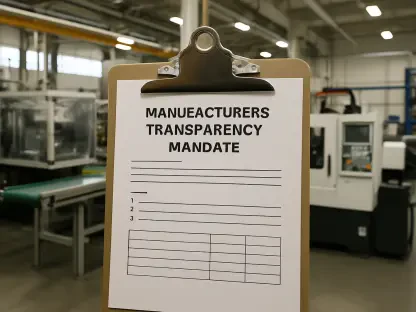The possibility of the Department of Justice dropping its criminal prosecution against Boeing, following the catastrophic 737 Max crashes in 2018 and 2019 that claimed 346 lives, has sparked intense debate. The prosecutorial action arose from accusations that Boeing misled the Federal Aviation Administration by withholding vital information about the aircraft’s Maneuvering Characteristics Augmentation System (MCAS), which significantly contributed to the crashes. Initially, in 2021, Boeing circumvented prosecution by entering into a deferred prosecution agreement, which included substantial financial penalties. Recent discussions suggest a new non-prosecution agreement could impose additional penalties and obligations on Boeing. This legal shift has incited strong opposition, especially from the families of crash victims who demand public accountability and prosecution of former company executives.
Legal Proceedings and Settlement Options
Negotiations for a New Non-Prosecution Agreement
The dialogue around potentially dropping criminal charges against Boeing reflects a legal landscape fraught with complexity and controversy. One of the notable developments is the consideration of a new non-prosecution agreement. The speculated terms of this agreement raise questions about accountability and the implications for corporate governance in the aviation industry. Significant financial penalties, further obligations, or conditions may form part of this new legal framework. These elements aim to strike a balance between holding the company accountable and preventing similar tragedies from occurring.
Despite these potential resolutions, families of the victims have expressed strong opposition. Their collective voice strongly advocates for a transparent legal process that includes a public trial. They argue that such a trial serves as a necessary platform for justice, ensuring that the individuals responsible for negligence and misconduct are held accountable. This sentiment underscores the profound moral and ethical considerations at play in this complex legal affair.
Impact on Boeing and Regulatory Oversight
As Boeing navigates this turbulent period, broader implications loom for the aviation industry regarding regulatory oversight and corporate responsibility. Critically, the discourse surrounding Boeing’s case extends beyond the immediate legal ramifications and calls into question the foundational principles of accountability and ethical behavior in large corporations. The company’s handling of the MCAS disclosures and the subsequent crashes have led many to scrutinize the role of regulatory bodies like the Federal Aviation Administration. The ability of such organizations to effectively supervise and ensure airline safety is now squarely in the spotlight.
This period marks a pivotal moment for Boeing’s corporate reputation and market standing. As discussions progress, the company confronts potential challenges in restoring public trust and maintaining its role as a leading aviation player. Key to this process is demonstrating a commitment to safety, ethics, and transparent operations that aligns with public expectations and regulatory standards. The resolution of this case could leave lasting implications on how the industry approaches safety and customer trust.
Family Perspectives and the Ethical Debate
Calls for Justice from Families
For those who lost loved ones in the 737 Max crashes, the emotional toll remains profound and palpable. Their call for justice, characterized by demands for accountability through a public trial, underscores an intrinsic need for closure and recognition. The family members of the victims argue fervently that dismissing the charges without a trial not only disrespects the deceased but also sets a dangerous precedent. Accountability, in their view, requires visible and tangible consequences for those in positions of power who failed in their duties.
Beyond the personal narratives of loss and grief, the families’ unified stance is a powerful reminder of the human element often overshadowed by legal and corporate discussions. Their persistence in demanding accountability highlights a broader societal demand for ethical behavior and integrity within powerful corporations. This case serves as a testament to their resilience and strengthens the discourse around corporate responsibility and justice.
Broader Implications for Corporate Ethics
The ethical dimensions of the Boeing case touch on larger concerns about corporate practices and the governing norms in industries impacting public safety. By closely examining Boeing’s decisions leading up to the crashes, the necessity for stringent ethical standards in corporate governance becomes apparent. The breakdown that facilitated the 737 Max tragedies calls for a reassessment of ethical guidelines and enforcement mechanisms across sectors capable of affecting public welfare.
The Boeing case highlights a crucial opportunity for elevating ethical discussions within boardrooms and among stakeholders. It prompts a reevaluation of how companies balance profitability with ethical obligations and transparency. In the broader picture, this debate could catalyze much-needed reforms, steering the aviation industry toward a safer, more accountable, and ethically sound future. Addressing these ethical concerns is essential not just for rebuilding trust but for ensuring that the mechanisms for accountability are robust and preventive rather than reactive.
Future Considerations for Justice and Accountability
The discussion about possibly dropping criminal charges against Boeing highlights the complex and controversial legal challenges surrounding corporate accountability. One major development is the consideration of a new non-prosecution agreement, raising crucial questions about accountability and its implications for corporate governance in aviation. Speculated terms of such an agreement may include significant financial penalties alongside additional obligations or conditions designed to create a framework that balances holding Boeing accountable with preventing future tragedies. Despite these efforts, victim families strongly oppose such resolutions, advocating for a public trial. They emphasize the need for transparency in the legal process, asserting that a trial serves as an essential forum for justice, ensuring accountability for those negligent or involved in misconduct. This opposition highlights the deep moral and ethical issues at the heart of this legal matter, calling for a fair examination of responsibility and justice.









